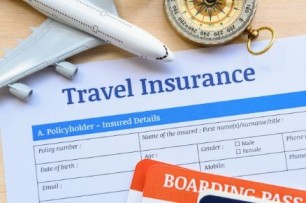General Insurance Blogs, Articles & Updates by - Magma HDI
Have us call you
- RENEW YOUR POLICY
- BUY NEW POLICY

Benefits of getting car insurance
An increasing number of vehicles on the road, along with the insufficient infrastructure to support them, is leading to a rise in the number of accidents and fatalities. There were over 4.61 lakh road accidents just in 2018 and these are only the ones that were reported. Car insurance becomes very important at times like these. It saves you from paying massive amounts to repair the damages to your car.
Still not convinced? Here are some of the benefits of buying a car insurance policy.
Protects your finances in case of an accident
If an accident happens, your Car Insurance can protect your finances by covering the repair expenses. If there's a third party involved and you are liable to pay them for any property damage or medical help, you can rest assured as your insurance can take care of that as well. In fact, it doesn't even have to be a road accident, as it also covers claims resulting from man-made and natural calamities like storms, floods, theft, vandalism, or riots.
Offers coverage for theft
You spend so much time, effort and money on buying a new car. The last thing you'd want is for someone to steal it. As sad as that is, it's not impossible. Which is why a good motor insurance policy also covers you against it. If your car is stolen, your policy will reimburse you the cost of your car. It can also cover the cost of repairs resulting from the break-in attempt.
Avail cashless services
When you buy motor insurance, you are entitled to getting cashless services at your insurance provider's network garages. This essentially means that you can get covered services without having to pay a single rupee. Say you damage your vehicle, all you need to do is go to your nearest network garage, show proof of your insurance and get the repairs done.
Covers personal accident liabilities
Motor insurance policies also cover disability or death leading from a car accident. So your motor insurance covers both you and your vehicle. For a person other than the owner/driver, you can separately buy a personal accident cover. The cost of your cover will depend on the extent of coverage you choose
Provides customization with riders
Riders or add-ons offer additional coverage on your basic motor insurance plan after payment of a nominal fee. The standard rider options are:
- Zero depreciation add-on where your insurer bears the cost of repairs without considering the depreciated value of your car. This feature helps you maintain the value of your car despite wear and tear.
- Road-side assistance add-on helps you out on the spot whenever you encounter any issues such as a flat tire, dead battery etc. You may even get additional road-side assistance with Magma HDI.
- Engine protection add-on covers damages to the engine due to malfunction, water damage or leakage of lubricants.
- Loss of personal belongings add-on is protection against accidents or burglaries where you end up losing valuables such as your phone or laptop. Your insurance provider helps you out with this cover by reimbursing you for your loss.
So, having the right car insurance is like always having someone watching your back when you’re driving your vehicle. It ensures the safety of your car, passengers, and pedestrians.

The Evolution of Health Insurance
Health insurance is a necessity in today's age, but the easy accessibility and wide range we enjoy today weren't always there in the past. It's safe to say that health insurance policies in India have forged their path over the years. But do you know how? Here's where we can help you with facts about the insurance you can't do without these days.
How did it begin?
Since the independence of India in 1947, our healthcare system revolved around government schemes and plans. The life insurance system that dates back to 1818 was the first of its kind for Indians. The popularity of life insurance in India was attributed to the low life expectancy and closely-knit family systems.
However, with liberalization in the early 1990s, healthcare delivery improved with an increase in disposable income. As a result, life expectancy increased to 65 years by the year 2011. The nineties also saw an influx of other things such as lifestyle diseases and consistently rising medical costs which made health insurance the invaluable commodity that it is today.
Crucial developments and current scenario
The IRDAI or Insurance Regulatory and Development Authority of India's legislation of the year 2001 is a vital milestone for Health Insurance In India. It opened new avenues for investment by private players in the industry. Over the years, the advancement of treatments and cashless claims enhanced the popularity of health insurance policies among buyers.
Despite all these developments, the sector is largely dominated by government-owned enterprises and its subsidiaries that account for nearly 60% of the total market share. Private health insurers are increasing their base and outreach mainly in the tier-1 and tier-2 cities with features like cashless payments and in-patient reimbursements. A major goal of health insurance is reaching all parts of the country.
Challenges for health insurance
Over the past two decades, the health insurance providers in India are consistently struggling to provide accessible and affordable care to the masses. It has many challenges that need critical analysis and solutions. The main challenges in this sector are:
- Lack of awareness about the importance of health insurance. For instance, people don't realise how much difference a comprehensive health insurance can make at the time of an emergency.
- Gap between affordability and accessibility because the rural population relies on government-based facilities as the private sector does not cater to their basic needs.
- Differences in service quality due to multiple levels of care delivery system. This increases the overall costs and causes quality concerns.
- Ignorance on the part of consumers which makes them avoid getting insurance until the last minute.
- No strong regulatory framework to standardize the healthcare delivery system.
These are only some of the glaring issues we face in our country. Both consumers and insurance providers need to do their part so as to bridge the gap which will allow everyone to get healthcare in an easy and fair manner.
Future trends in health insurance
With the internet and other media platforms, more and more customers are beginning to understand the importance of health insurance. As a result, the number of policies sold has doubled in the last ten years.
The millennials have become a key focus for the major players due to their increasing awareness and their numbers in the workforce. Incentives such as tax benefits also encourage the working class to invest in health insurance plans.
In a nutshell, a focused approach of evolving cost, quality, and access show a promising future for healthcare insurance in India.
Standardization of adequate health care provisions is still an aspiration which must be realized over the years.
To get the best of Health Insurance Policies In India, Check out Magma HDI.

The truth about theft insurance
With gated communities and technologically superior security systems, theft has significantly reduced in our country; however, as with any other type of risk – it can only be minimised, not eliminated. Its consequences also are not limited to your financial losses but also includes trips to the police station, affidavits, reams of paperwork, fear and trauma, leaving you depleted in all senses of the word.
This is where theft insurance comes in. Getting financial protection for your loss sure does take a load off your mind if an unfortunate incident does take place. Read on to find out more about theft insurance and how it works.
Theft insurance is essentially a plan that will cover you for any losses arising from burglary, robbery, etc. Not only does the policy cover you for the loss of valuables but also for any damage to premises, furniture, fixtures and physical assault during the attempt. Insurance providers such as Magma HDI also cover temporary security expenses so that you and your loved ones can feel safe again. Thus, you can rest assured that your insurance plan will take care of all your needs.
Important points to remember
- It is imperative to carefully go through your policy documents to understand the coverage, terms and conditions, exclusions etc. provided to you. For example, when looking to travel extensively, some insurance companies will ask you to intimate them if the premises will remain unattended for an extended period of time.
- The claims process for any insurance policy holds immense significance for all of us. Under a theft insurance policy though, theft and burglary are two separate events while filing your claim. While theft is a non-violent and unforceful entry into your premises, a burglary involves a forceful or violent attempt by breaking in/ tampering in order to rob you. Usually, you would need a separate cover for either peril, but nowadays insurance companies in India provide coverage for both through a single policy.
Ideal coverage
A common dilemma while opting for a Theft Insurance Policy is determining how much coverage you need. An important point to remember while making this decision is that your coverage will be limited to the sum assured by you. So, if you have assets worth 20 lakh in your home and have a coverage of 5 lakh, the insurance will only cover the loss till the extent of the sum assured. To avoid getting inadequate coverage, it is important to assess the worth of all your insurable assets and look for an insurance plan that gives you coverage based on your needs.
Exclusions
There will inevitably be a few exclusions to your cover. For example, some theft insurance policies do not cover cash or cash equivalents, stocks and share certificates, agreements and title deeds. Similarly, you may need to purchase a rider to cover for precious metals such as gold, silver, etc., precious stones such as diamonds, and other art and antiquities. Thefts committed by family members, house help or employees, loss arising due to riots, terrorism and war are excluded as well.
A final tip for you is staying on top of your policy. Reassessing your coverage needs periodically, especially when adding new inventory, expensive machinery or valuables will ensure that your financial risk is minimised in case of any unforeseen incidents.

Everything you need to know about marine insurance
In spite of the advancement in road, air and rail transportation, the sea route remains the most preferred mode of freight for international trade purposes. The sheer magnitude of cargo at stake is enough to make anyone think twice about what measures you can take to secure your shipments.
This is where marine insurance comes in. It gives you the peace of mind you need with its extensive coverage.
What is marine insurance?
Marine insurance protects you in case of damage/ loss of cargo, ships and vessels; when a property is acquired, transferred or held in possession between the starting point up until the destination.
Why buying marine insurance is a good idea?
Consider an example. Suppose you are a seller and you put your goods on a ship. Due to bad weather or a storm at sea, there is damage to valuable goods to an extent whereby the customer at the destination refuses to accept the final goods. For no fault of yours and due to unavoidable circumstances, you would suffer a monetary loss that could even go in crores!
Thus, it is essential to buy marine insurance to get coverage for the following:
- 1. Export or import shipments.
- 2. Goods being transported using sea, rail, road, post or air.
- 3. Goods being carried via coastal vessels plying between ports located within the country.
- 4. Goods that are transported via the vessels plying along rivers.
Other Advantages
Here are some other advantages that you are entitled to with your marine insurance-
- 1. The insured obtains additional advantage of global claim survey and settlement.
- 2. The cover accommodates diverse situations including property damaged either/or onshore or offshore, casualty at sea, marine liability, hull damages and other needs of the insured.
- 3. There is an option to extend the plan to include protection against extraordinary circumstances like perils at sea, strikes, pirate hijack etc.with the help of add-on covers.
- 4. Marine insurers would be willing to provide tailor-made policies as per specific requirements and budget of the insured such as Magma HDI's Marine Insurance Policy.
Exclusions
Marine insurance covers many situations, but the following are the exclusions:
- 1. Normal wear and tear or leakage.
- 2. Goods getting damaged during transportation owing to improper packaging.
- 3. Any damages due to delays.
- 4. Any damages caused intentionally to incur a loss and make a subsequent claim.
- 5. Any damages due to a civil disturbance, war, strikes, riot etc.
- 6. Any damages due to a financial difficulty such as bankruptcy or financial default of the owner of the transport vessel.
It is always a great idea to assess your unique needs before going out to purchase any insurance. However, getting a plan that is comprehensive in nature can never lead you wrong.

Affordable Health Insurance is a reality
There is a famous saying "health is wealth," and it is indeed true in today's context. With people getting busy with their hectic life, there is a growing trend of unhealthy eating habits and sedentary lifestyle. In the pursuit of money, health has been left far behind. Now, one cannot give up on his/her career, but they certainly can opt for a health insurance policy that offers protection against unexpected medical emergencies. Health insurance is ignored by people for many reasons, and this has led to India's problem of "under-insurance." Herein, people opt for an inadequate amount or rather do not opt for any health insurance thinking that no ailment can affect them. Another reason given by people is that the premium for health insurance is very high, and they cannot afford it.
Affordable Health Insurance – is it a reality?
The excuse that health insurance is expensive is not true. Affordable health insurance is a reality and has benefitted many families for the past few years. With the rapid integration of technology in the insurance sector, many insurance companies are now offering their services online. You can easily purchase or renew health insurance online in a few clicks. As most companies have taken their operations online, the cost of availing and renewing health insurance has gone down substantially.
If you are still unsure about the affordability of health insurance plans, here are some tips to help you select an affordable health insurance policy for yourself as well as your family:
Understand your requirements: First of all, you need to understand yours and your family's health insurance requirements. Consider factors like the number of members, their age, existing conditions, family health history etc. This will help you understand the extent of coverage that you require.
- Start early: Health insurance premium against a new policy for a young person of 25 years will be much lower than for a mature person of around 50 years of age. This is due to the risk involved for the insurer. So, you must subscribe to a. personal accident insurance online as soon as you start work, to enjoy the lowest premiums. Then gradually, keep on enhancing the coverage of your policy as your income rises.
- Do some research: Several online insurance marketplaces have come-up, which allows you to compare policies from different insurers easily. As these marketplaces eliminate the agent from the transaction, the cost of the policy goes down substantially. By comparing the coverage of different policies, you can reduce your premium payments significantly.
- Opt for a floater policy: You can opt for a floater policy wherein one policy covers your entire family, including dependants. Instead of paying separate premiums, you only need to pay a single premium and will get insurance coverage for the whole family.
- Tax Benefits: You can claim an income tax deduction of up to Rs. 25,000 for the health insurance premiums paid in a financial year for yourself and your family. If you pay a health insurance premium of your parents, you can claim an additional tax deduction. Thereby, you can save substantially on your income tax liabilities.
- Online renewal: When you renew health insurance online, through the insurance company's website or any online marketplace, you can enjoy lower premiums. As the companies do not need to pay any commissions, you can save a significant amount of money by opting to renew health insurance online.
The benefits offered by a health insurance plan are too good to be ignored just because you think health insurance is unaffordable. Do some research, and you will see that health insurance is indeed affordable and is rather a necessity for your family.

5 Reasons why you should have an Individual Personal Accident Policy
There is a false sense of security in most individuals, where one feels like they can never meet with an accident, but like as the saying goes, it is better to be safe than sorry. No one wants to experience an unfortunate incident, but whether due to your mistake or someone else’s mistake, you can meet with an accident anywhere and anytime. Although no one can control such situations, you can certainly prepare for it.
With the number of vehicles steadily rising, across the country, the possibility of a car-related tragedy also increases. In situations as such, you could be staring at high costing expenses on hospital bills, as well as a loss of income due to being bed-ridden. Having an individual accident policy will take care of all these emergency expenses.
What is a personal accident policy?
Personal accident policy offers insurance cover to policyholders in case of an accident or injury caused due to any given reason. The insurance company will reimburse the policyholder in cases of serious injuries, permanent disability, or death, accidentally caused, according to the terms and conditions of the policy.
You can buy your personal accident insurance online as well as offline, as per your preference.
Why should you have a personal accident policy?
There are various benefits offered by a personal accident policy, which make it necessary for you to have one, such as:
- Reimbursement in case of disability: If you face an accident and suffer a temporary or permanent disability, you can claim compensation from the insurance company. The company will assess the nature of the injury or disability and give you compensation as per the guidelines of the policy. This will support you and your family financially during such tough times.
- Hospitalisation and other expenses are taken care of: All hospital bills and cost of treatment are covered under the policy. In case of death, the insurance company will pay for the repatriation, funeral, and ambulance charges.
- Reimbursement for modifications: If the accident has left you wheelchair-bound, then you need to modify your home or vehicle to suit your needs. Any expenses incurred for such adjustments necessitated by the mishap can be reimbursed from the insurance company.
- Payment of death benefit: If the mishap results in unfortunate death, then the insurance company will pay the death benefit amount, as per the policy terms and conditions, to your family members, offering them financial support.
- Transportation of family: If you are admitted to a hospital after an accident and the hospital is more than 150 km away from your home, the insurance company will pay for the transportation costs incurred by your family.
To avail such benefits in the time of emergency having personal accident insurance online or offline is imperative for the financial well-being of your family.

Benefits of daily cycling
In modern times, various lifestyle-related ailments such as diabetes, hypertension, depression, obesity, etc. have started affecting people from a young age. Due to 24*7 use of smartphones, unhealthy eating habits, and a lack of physical exercise, more and more people are getting affected by these lifestyle diseases. While you may have thebest health insurance policy in india , you need to engage in regular physical exercise to stay fit and healthy. There are various forms of exercises that you can indulge in, but the benefits of daily cycling are too good to be ignored.
Cycling is regarded as one of the best ways to stay away from lifestyle conditions and reduce the risks associated with a sedentary lifestyle. Additionally, it is one of the cheapest, enjoyable, and useful physical workouts. If you are still unsure about the benefits of daily cycling, here are the health benefits of regular cycling:
- Fewer chances of injury: Cycling hardly causes any strain and can be enjoyed by people of all age groups. There are minimum chances of injuries while cycling, as compared to other forms of exercise.
- Time-efficient: Cycling is one of the most time-efficient exercises you can engage in. Not only does it offer you several health benefits, but it can also be used as a means of transport. It will help you get rid of your inactive lifestyle and save your travelling expenses as well.
- Easy to learn: Even if you do not know how to cycle, it will only take you a few hours to get the hang of it. There is no need for strong physical skills, and it does not need a lot of practice to learn it; it is one of the easiest exercises to learn. You can start from low-intensity mode and increase as you get used to it.
- Boosts your stamina: Cycling engages several muscles in your body and thereby helps boost your stamina over time. It also improves your lower body strength as well as aerobic fitness.
- Reduces stress levels: Going for cycling in the morning helps you come closer to nature. The fresh morning air acts as stress-buster and enables you to feel relaxed and rejuvenated.
- Freedom from obesity: Cycling is one of the most useful workouts to help you get rid of excess fat from your body. It boosts the metabolism rate and helps build muscles. Within a few weeks of cycling, you would start witnessing a reduction in your weight; and would feel active and fit.
- Reduces the risk of specific cancers: Research has proven that regular cycling reduces the risk of various types of cancers such as breast cancer, colon cancer, and bowel cancer.
With various health benefits on offer, cycling is undoubtedly one of the most useful forms of physical exercises available. To enjoy good health and freedom from health-related stress, it is essential that you eat a healthy diet, engage in regular physical activity, and subscribe to the best health insurance policy in India.

Five things you should know about personal accident insurance
Financial security is a priority for any family and having health insurance is one of the first steps towards keeping your family secure during health emergencies. But, what about other emergencies which are beyond the coverage of any health insurance policy?
Zeenat, a single parent of a 6-year-old daughter, takes as many precautions for her daughter's well being as she can. She has saved enough for daughter’s future in forms of fixed deposits and mutual funds. She has also taken health insurance for both to secure against any health emergencies. The planning seems perfect for a family of two people except for a loophole, not having an accident cover that could put all in vain if something goes wrong.
According to a report by the TOI, In India alone, about 1.49 lakh people lost their lives by road accidents in 2018. Personal accident insurance is an answer to such life-threatening situations, as a family gets shattered just by the news of an accident, let alone the future consequences that might bring substantial financial burden. However, before you go for a personal accident insurance plan, here are some things that you must know:
1. What is personal accident insurance?
A personal accident insurance policy gives you a cover against accidents. It could be a road accident, a sudden fall, or any situation that leads to a disability or even death. Having personal accident insurance will save your expenses during such an emergency, and the insured amount would also take care of the loss of income that occurred during this period.
2. What does a personal accident insurance plan offer you?
Personal accident insurance generally envelops accidental death, permanent total disablement, permanent partial disablement and temporary total disablement.
But one thing that worries a person is what if the medical expense goes beyond what his policy can cover? With Magma HDI's Individual Accident Policy cover, a person can opt for Medical Expense Extension and Hospital Confinement Allowance.
3. What does the personal accident policy not cover?
It does not cover natural death due to drug addiction or alcoholism, adventurous sport, a breach of law with criminal intent, suicide-attempt, pregnancy, war, civil war, invasion, act of foreign enemies, revolution, insurrection or mutiny, pregnancy, participation in any naval, military or air force operations, curative treatments or interventions.
4. What is the need for personal accident insurance?
The need arises from the gap that health insurance and a life insurance policy will not cover. While, health insurance mainly covers the severe ailments and any other health emergencies, a life insurance policy pays compensation only in case of death. A personal accident insurance policy, on the other, is equally important for your insurance portfolio, which covers the policyholder in case of hospitalization or even in case of death due to an accident.
5. What is the ideal personal accident insurance?
The ideal personal accident insurance depends on individual exposure to situations and risks. For example, if your profession requires extensive travel, opt a plan that covers your international travel.
Go for the best personal accident insurance plan that ensures the maximum coverage and financial stability in the event of any accident.

Easy ways to choose affordable health insurance
Medical facilities in India have now achieved the status of being “world-class,” allowing the people of country with access to best treatment within the country. This improvement in facilities has come along with a substantial increase in medical expenses. As a result, purchasing health insurance in India has become a necessity because covering medical expenses from your own pocket has become virtually impossible. In fact, if your parents are in their older years, you must opt for health insurance in india for parents to allow them access to best-in-class treatment for their ailments, without jeopardising their financial future. Due to the efforts of the Government and leading insurance companies, awareness regarding health insurance has improved significantly in India.
With multiple insurance companies operating in India and offering various health insurance plans, it is certainly possible that you are confused regarding the best option. If you are unsure regarding the best policy for you, then read on to know about the easy ways to choose affordable health insurance:
- Understand your requirement: Firstly, understand the extent of coverage you require. This will depend on numerous factors like your age, family size, premium affordability, and future health requirements. Moreover, if your parents do not have a health cover, then you must get health insurance in India for parents. Also, there are various additional covers available, which can come handy in case of certain conditions.
- Coverage for ailments: Nowadays, there are several health insurance policies that offer coverage for specific critical illnesses. You need to ascertain the type of diseases you wish to cover under your health insurance policy before opting for an option.
- Coverage for pre-existing ailments: Different health insurance policies offer different waiting period for pre-existing illnesses. You need to identify a plan that has a minimum waiting period. This will save you from unexpected hospitalisation expenses in case you need treatment for the ailment before the completion of the waiting period.
- Claim-settlement ratio: This ratio signifies the percentage of claims that the insurer settles out of every 100 claims received. You need to opt for an insurer with the highest claim settlement ratio so that your claim would not be rejected for any frivolous reason.
- Cashless hospitalisation: Different insurance companies have agreements with different TPAs (Third Party Administrators). These different TPAs have different hospitals on their panel. You should opt for an insurer who offers maximum hospitals for cashless treatment. Moreover, the hospitals near your home should be covered under the panel of the TPA, as it would convenient for you in the need of emergency.
- Compare the premiums: Last but not the least, make it a point to compare the premiums of different insurance companies. For the same extent of coverage, different insurance companies charge different premiums. Nevertheless, there are various plans that offer cheaper premium but also have reduced coverage. There are various online platforms where you can easily compare various health insurance plans, their coverage, and other essential parameters.
The importance of choosing the right health insurance plan cannot be neglected as it is directly associated with your health. So, never rush but always make an informed decision after carefully comparing various crucial factors affecting your health plan.

How have basic Ayurveda tips transformed our lives for the better
Ayurveda is not just about natural herbs and spices and consuming them raw. It is more about how you can boost your immune system and increase the efficiency of your organs to energise your bodily functions. Unlike the traditional methods of human living, Ayurveda emphasises ramping up your everyday lifestyle by prioritising your mental and physical health remain in check. It helps you in achieving the true meaning of “health is wealth” without distinguishing between the value of the mind and the body.
Are you looking for more information on how Ayurveda would help you change your lifestyle for the better? This blog will help you gain a positive outlook on this old Hindu system incorporated into the Atharva Vedas, the last of the four main Vedas in history. So, let’s get started.
1. Early to rise:
We all have read “early to bed and early to rise makes a man healthy, wealthy and wise”. The same has been repeatedly told to us by our parents and every adult you might have encountered. Well, Ayurveda reaffirms the truth in this statement. It states that the morning is the freshest and the purest time slot of the entire day, which can be super productive if appropriately utilised.
Waking up around 4:30 AM-5:00 AM daily will help you achieve positivity and a more robust and healthier outlook on life. It will also regulate your bodily functions and give you a headstart to the day compared to others who groggily wake up late.
2. Pay attention to your eating habits:
Ayurveda instructs that you practice a healthy habit of eating and calls it “ayurvedic eating,” which involves the importance of consuming natural and green vegetables and fruits.
It mentions the negative impacts of junk food and how essential it is to avoid such oily items loaded with unwanted carbohydrates and fats, which are difficult to break down and get deposited in your body. This leads to several major diseases which can potentially endanger your health in the long run.
3. A morning refreshing drink goes a long way:
We all have heard that consuming water with a few drops of honey in the morning helps rejuvenate your body as you begin your day. Add a teaspoon of quality honey in half to one glass of water and consume it as you wake up. This helps eliminate all the toxins in your body, and this mixture also helps kill several types of harmful bacteria.
4. Pay attention to your sleep:
After an entire day of work and other activities, your body and brain get exhausted. And to re-energise and detoxify all the tiredness, you need to sleep a good eight hours. Sleeping properly boosts your health and strengthens your immune system. It also helps in proper blood circulation, thus providing you with sufficient energy to function throughout the next day and take on the challenges the day presents you with.
Other Ayurvedic practices include walking. It is considered one of the best exercises one can do at their own pace without exhausting themselves for hours at the gym and taking additional supplements. Creating a routine and sticking to it has been given a lot of importance in Ayurveda. Your body functions better as it slowly gets habituated, thus providing a structure to your day instead of just letting you wonder how to go about processing and working on multiple things.
We are all aware of how unpredictable life can be as we face the pandemic and extreme situations. To battle the uncertainties of life, we must have some assurance that does not land us in financial stress. It would be best to get general insurance to combat health issues and not lose money on your assets. Explore the options provided by the best General Insurance companies in India, and buy a reliable health insurance plan. This will give you the confidence to lead a healthy life where health expenses don’t feel a burden!
Click HERE to learn more about the insurance benefits of various insurance benefits of various general insurance companies in India.
Disclaimer: The information provided above is for illustrative purposes only. To get more details, please refer to policy wordings and prospectus before purchasing a policy.

Here is a list of medications you must carry on a trip
With today's working culture and daily hustle, travel is one way to unwind and relieve stress. Considering the various travel destinations and experiences, it is no surprise that people want to leave the comfort of their homes at least once a year to explore exotic places. However, you must have faced instances where you have fallen prey to common ailments on a trip, ruining your whole stay while your loved ones had the time of their lives.
It is very taxing to hunt for medicines in a place where you don't know the language and are a stranger. So, it is wise to make a medical kit where you keep medications for the most common ailments. This blog gives you a list of medicines you must consider carrying on a trip.
1. Antacid:
With a new, exotic cuisine to try, no one plans to walk around the trip with a stomach burn from acidity. So, an antacid is extremely important to carry on a trip to remain tension-free about all the new food you will savour.
2. Diarrhoea medicine:
Travellers often visit new and exciting places in remote areas to absorb fresh perspectives and quaint experiences. However, they face health issues while adapting to the food and water in these unfamiliar regions, creating an uncomfortable situation with diarrhoea. Carry anti-diarrhoea medicine in all of your travels to get rid of this problem.
3. Fever medication:
No tourist wants to lie in bed with a headache and fever instead of exploring a place's attractions, cultures, and heritage. Take a paracetamol pill and get going with your day as a quick fix to a jet lag-induced headache or joint pain.
4. Cough syrup:
Cough syrups are essential while going on a trip. No one likes a scratchy and congested throat while moving around the city, asking for directions, or ordering food. It's best to take one that does not make you sleepy to enjoy your trip to the maximum.
5. Laxative:
With all the new types of food you will be trying out, it's best to keep a laxative handy for the trip to avoid any complications with your digestive system.
6. Diabetic supplies, including insulin:
If you have diabetes, ensure to take all the medicines prescribed by your doctor along with you. It's best to make a separate package for all your medication for diabetes. If you take insulin subcutaneously, it is best to store it in a cold place.
7. Motion sickness medication:
Motion sickness is a problem that ails the majority of travellers. Take some over-the-counter medication with you just in case it decides to make an appearance.
8. Antihistamines:
Allergies can spring up on you at the worst of times, leaving you with itchy eyes and a scratchy throat. It's better to be safe than sorry and pack mild histamine for these issues.
9. Sleeping pills/mild sedative:
If you have trouble falling asleep in new places, consider taking some mild sedatives with you just in case. Ending up sleep deprived on a trip certainly reduces the magic of it, so it's best to have your beauty sleep and be active during the day.
Sickness during a trip is highly uncomfortable and can significantly spoil the trip's fun. And there might be complications that can leave everyone frustrated. Carry the medicines above with you and avoid health ailments affecting your vacation.
These were a few ways to keep your health sound, but what about the safety of your belongings during travelling? It's best to research travel insurance and get general insurance online quote to be stress-free during the trip and protect your travel with the best protection.
Click HERE to know more about general insurance online quote.
Disclaimer: The information provided above is for illustrative purposes only. To get more details, please refer to policy wordings and prospectus before purchasing a policy.

The top cycling tours in India you can try this monsoon
Cycling is not just a sport. It is also one of the healthiest habits one can develop, to keep one's mind and body in good shape. It's no wonder that cycling is a prevalent pastime among people after all these advantages. This way of travel is steadily gaining popularity among people of the new generation.
It is also a feeling that gives us nostalgic moments from our childhood. Cycling is an excellent way to spend time with yourself. Who doesn't want to cycle through the beautiful, frosty Himalayas, Meghalaya's lush green forests, or Udaipur's rich cultural city?
This blog has curated the perfect list of cycling tours in India to give you information on planning your next cycling trip!
1. Mangalore to Goa:
This scenic stretch of road along the coast of the Arabian Sea is one of the most breath-taking sites to see in the world. The quaint villages of the south will amaze you with the beauty in their simplicity, the waterfalls, temples, and national parks in the area are a bonus. Don't stop when you reach Goa. Visit all the key tourist sites on your bicycle to get the full experience of the trip.
This 350-kilometre trip might seem difficult, but with the right company for motivation, it will prove to be one of the best experiences of your life. This trip, on average, takes 06 days to complete.
2. Puducherry:
Going further south, there's nothing like cycling through the picturesque city of Puducherry (formerly known as Pondicherry). Dotted with the best of the post-colonial architecture of the French, this vibrant city has beautiful cathedrals, coffee shops, and, most importantly, the famed town of Auroville. Don't forget to book your ticket to Auroville in advance to gain a different perspective on spirituality in this renowned town of devotees from all around the globe.
3. Manali to Leh:
The stretch between Manali and Leh is the perfect route if you're looking for more of a challenge and less of a holiday. This endurance test will give you one of the most life-altering experiences. Manali is a charming city, popular among nature and adventure lovers alike. The way to Leh is the famed Rohtang Pass, at an altitude of 13000 feet. The majestic mountains and the scenic lakes are something to experience once in a lifetime. It is imperative to know that this trip pushes your limits and will require your full physical fitness. These are difficult roads to take, and it is best to research general insurance companies in India before planning your trip.
4. Shillong to Cherrapunji:
Moving to the beautiful northeast, Meghalaya is a mesmerising monsoon destination. With the drizzling rain pattering on the rich flora and fauna of the forests, it's a nature lover's dream come true. Meghalaya is a gorgeous yet primarily unexplored part of the northeast that should be on every cyclist's list. It is the perfect ride for the curious traveller with bountiful greenery and terrains. This 60-km journey might be difficult, but it is worth.
These cycling trips will surely be enjoyable and eye-opening experiences for individuals. It is worth riding up the hills, the jungles, and the cities' interiors. Before hopping on the seat, it is essential to wear all necessary safety gear like helmet, knee and elbow guards, and most importantly, do the servicing and maintenance of your bicycle.
It is stressful when there is uncertainty of an accident. Research the best general insurance companies in India for buying a travel insurance cover to stay protected and enjoy your trip without any worries of mishaps. You are now all set to get the wheels moving.
Click HERE to know more about general insurance companies in India.
Disclaimer: The information provided above is for illustrative purposes only. To get more details, please refer to policy wordings and prospectus before purchasing a policy.

What are the useful ways to deal with leakages at home
It is highly inconvenient to face water leakage in the home, be it a major one like a burst pipe or a steady drip from the tap. If not controlled in time, water leakage is expensive damage to deal with at home. It can waste gallons of water, but the maximum damage occurs if water seeps into the ceiling and destroys the walls and the paint job.
Our homes even face significant damage due to water leakage during monsoon. Heavy rainfall leads to leakages that get frustrating over time. This blog provides practical ways to deal with such leakages at home before calling an expert.
How to prevent a water leak:
Prevention is always better than cure. A few annual regular check-ups can prevent the hole in your pocket. Keeping this in mind, here are a few ways to check-up on your water pipes and supply to avoid massive repair work.
1. Keep your spidey senses on and feel around your home for areas with moisture or mould that might leak the plumbing. Inspect the most vulnerable parts of your home, including the roof and the walls, to check for any dampness.
2. The pipes exposed to the elements should be adequately insulated to prevent their material from eroding. Insulating material comes cheap, so this method is highly cost-effective.
3. A stopcock can stem the flow of the water supply around the house. Make sure to know the exact location of your stopcock to prevent flooding in the house due to a sudden burst pipe.
4. Install a water leak detection device at home.
Know how you can detect a leak:
To fix a water leak, you need to accept and inspect that it’s happening. The easiest way to check up on your plumbing is to check your water usage. If it has significantly increased, there might be a probability of a water leak. If this method seems too unsure for you, you can turn on the water supply without using water for an extended amount of time, say 02 to 03 hours and check if any water has been consumed. This is a sure sign that there is a leakage somewhere.
Ways to fix the water leak:
1. Turning off the water supply: The first step to prevent further damage to your home is to stop the water supply to the house and perform a thorough inspection.
2. Turning on the faucets to drain: If there is a significant leak in the house, the next best step is to drain all the water in the pipes and faucets. Start with the garden hose if you have one, and let the water run out.
3. Locate the problematic area: Go around the house checking for leakage, whether major or minor, and get it fixed.
4. Applying epoxy putty: Before this step, it is essential to wear latex gloves to protect your hands because hot epoxy putty can end up burning them. Epoxy putty is readily available in all hardware stores and can be a temporary fix to a leakage. Mound the epoxy putty well and apply a generous layer over the leaking pipe or tap.
Although epoxy putty is a helpful fix to many problems, it is ultimately beneficial if you can get a professional to fix this issue. If it’s a major plumbing problem, it might damage the ceiling or walls and can be extremely expensive to repair. Reliable house insurance India is always the best way to prevent these expenses from emptying your wallet. You cannot risk your belongings at the cost of water damage. Invest in the best house insurance and get advantages that will help you reap good returns on your investment.
Click HERE to know more about house insurance India.
Disclaimer: The information provided above is for illustrative purposes only. To get more details, please refer to policy wordings and prospectus before purchasing a policy.

Let’s understand how data and analytics are shaping the future of insurance
Data is considered to be the goldmine in today’s day and age. When appropriately utilised, it is one of the most critical resources that can provide great insights regarding several aspects of industries, consumers, products and services, and much more. The demand for data analysts, cloud computing, machine learning, and data science experts is very high among the top skills organisations for several critical roles related to data. This helps them understand the market and current data to curate future projections about their businesses and associated clients.
Data analytics is the most up-and-coming field across all sectors of industries. Companies are investing tons of money, resources, technology, and workforce in analysing relevant data across various platforms. Through this blog, let’s understand how data and analytics are shaping the future of insurance.
1. Understanding predictive analytics:
We all make predictions about specific things based on the facts we have in hand or the experience from similar situations we might have been through. Similarly, insurance companies use predictive analytics as an integral method to predict patterns and trajectories regarding various parameters. Predictive analysis is an umbrella term comprising multiple methods like data mining, statistical analysis, data configuration, predictive modelling, artificial intelligence, machine learning, etc. These techniques help the insurance companies generate reports that would then provide analysis and information about several risks, policies, consumer behaviour, and future revenue and business projections.
2. How to make sure that your “flight-risk” consumers stay:
Insurance companies try to identify consumers with immediate cancellation tendencies, high premium possibilities, or lower coverage. These potential customers require special attention and care from the insurers to convert or stay their customers.
Data and analytics reports can help insurance organisations identify the areas of concern that need attention and how the services can be improved from the consumers’ perspective. Advanced insights, reports, and patterns can help insurance companies analyse the pain points and friction between the organisations and the customers. This aids them in making the improvements and offering the best deals for their customers, which won’t be a loss-making situation for the company.
3. Personalisation is the key:
Customers want services and products tailored according to their demands and the trends in the current market. Making the services more consumer-focused helps the insurance companies eliminate the competition and gain more customers.
Personalisation is directly related to consumer loyalty which benefits organisations greatly in the long-term projections. Customer retention costs are pretty less compared to the expenses of customer acquisition. Fewer businesses and brands focus on customer retention and implement marketing gimmicks but don’t get desired results. Personalisation is the answer to your customer retention and consumer loyalty equation here. Data analytics help you identify the red flags when rating the customer satisfaction provided by your insurance company. This allows the insurers to understand the market trends, how consumer demands are changing, and how they can bring their services up to the mark. The red flags can turn green based on the current reports, the future projections, and the options and techniques which can be implemented to achieve the targets and results.
Other ways in which data and analytics are revolutionising the insurance market include fraud detection, risk and mitigation measures, managing workforces, determining premiums and dealing with insurance claims, and much more.
Customers are advised to purchase GENERAL INSURANCE to ensure their financial assets are protected, and they can earn some profit even during financial losses. You can explore all your options and determine a general insurance company with high market credibility, attractive premiums, and an excellent claim settlement ratio.
Click HERE to know more about how you can find your ideal general insurance company.
Disclaimer: The information provided above is for illustrative purposes only. To get more details, please refer to policy wordings and prospectus before purchasing a policy.

Complete guide on using the residential apartment for commercial use
Using your private property for commercial purposes may seem like a fantastic way to grow your business if you have an office at home. It has been common practice to convert a residential property for commercial use to increase income. However, housing societies usually don't appreciate it when a whole residential unit is used for business.
Owners are permitted to use a portion of the property for commercial purposes. However, there are several restrictions and legislations that you must be aware of to use your apartment as an office space. In addition, getting the best home insurance policy in India can help you save money when you rent or buy a business space.
Is there a regulation in India that governs how residential property is used and rented out?
Across Indian cities, the zoning law is enacted by the local municipal government or authorities. It governs the use and allocation of land to different services and purposes. According to the legislation, commercial activity should be kept out of residential areas for the benefit of residents and to encourage the growth of the proper commercial regions.
What exactly does the law state?
It is essential to note that different states have different levels of leniency when it comes to commercial use. In some states, professional service providers such as doctors, lawyers, and chartered accountants are permitted to use up to 30% of their homes for business purposes. But in other states, they are not.
Before converting a residential property into commercial space, ensure that it's permitted. You must get clearance from the local housing authority. Once a property has been officially considered for retail space, it will be regarded as such for all purposes, including paying a higher property tax rate than a residential property.
Things to keep in mind when turning a residential property into a place of work.
Commercial activity is any activity related to the buying and selling of merchandise. Most housing societies allow the operation of businesses such as professions, services, and the teaching of specific art forms.
Activities such as yoga classes, tuition classes, or the services of chartered accountants, doctors, and lawyers are not considered as commercial activities. Commercial activity within residential properties may not be authorised due to security concerns as they create a significant traffic hazard for the neighbourhood.
For those who are willing to use their home for commercial purposes, here are a few considerations to bear in mind:
1. Before making an application, make sure you know exactly how much space you'll need and what kind of business you want to start.
2. Obtain a permit to operate a business from the local municipality.
3. Ensure that your clients are not using communal spaces such as the parking lot or other amenities.
4. If your home is turned into a business, you may have to pay more property taxes.
Many people find that running a business from home is an excellent way to save money since the cost of rent and transportation are significantly reduced.
Before starting a business in a residential space, get approval from the housing society, local councils, and zoning authorities. Also, get the best home insurance policy in India so that you can keep your apartment safe as you turn it into a business.
Click HERE to get the best home insurance policy in India.
Disclaimer: The information provided above is for illustrative purposes only. To get more details, please refer to policy wordings and prospectus before purchasing a policy.

Best tips to apply adhesive wallpaper for better results
Owning your own home is an extensive process. You explore hundreds of houses, put a lot of thought into remodelling and painting, and invest a ton of money in furniture and appliances that match your home's feel.
The walls of your house hugely contribute to the decoration and the aesthetic you want to create. They bring out the vibe you want your home to radiate. And while you can do many things to decorate your walls like hanging art, using textured paints and patterns, adorning them with home decor items, etc., a recent trend of adhesive wallpapers has garnered people's attention.
Adhesive wallpapers are easily accessible, come in various designs and colours and embellish the decoration of your home within a friendly budget. But applying these wallpapers can be a tricky and messy process.
This blog will discuss the best tips to use adhesive wallpaper for better results.
1. Wipe your walls:
It is good to clean the walls first with a microfiber cloth before applying the adhesive wallpaper. This will remove the dust on your walls and make the surface smoother for better application.
2. Move your furniture:
For correct measurement and easy installation of adhesive wallpapers, move all the furniture, switch covers and other removable outlets. You should make sufficient comfortable space to conduct the wallpaper work efficiently.
3. Layout:
Planning and jotting down the layout makes it easy to understand the space and the amount of wallpaper required to cover the area. You can either start by measuring the length and width of the walls and stick the stripes from left to right or by beginning at the centre, marking the left and right extremes and working your way, one direction at a time.
4. Check:
Once you stick the outline stripes, inspect the walls to check whether they are aligned and distanced equally. Overlapping might result in messy wall decoration.
5. Paint your walls:
Smooth wall paint works well with adhesive wallpapers if you apply satin-type primers. Matte paint becomes challenging due to its firm texture, thus making it difficult for adhesive wallpapers to stick.
6. Tools:
Using the right tools will help you in making the process of applying adhesive wallpapers easy. You can use a cutting knife to cut tricky corners and edges and a ruler to smoothen the rough edges and measure the intricate spots. You can also use a needle for popping the bubbles while sticking the wallpaper.
7. Peel properly:
Peeling the wallpaper must be done correctly. If you peel off the back paper in haste, you risk tearing the wallpaper and messing up the whole pattern and decoration. You can start from the top and work your way down slowly as you apply. Maintaining a steady flow of action and focusing on just your movement is essential.
Now that we have discussed the best tips to apply adhesive wallpaper for a better feel and appearance, it is also necessary to think about the safety of your house. Protect your home against unprecedented situations like fire, theft, or natural disasters, and avoid unwanted monetary stress. You can explore different options and choose the best house insurance in India, which caters to your needs and offers exclusive benefits.
Click HERE to know more about house insurance in India.
Disclaimer: The information provided above is for illustrative purposes only. To get more details, please refer to policy wordings and prospectus before purchasing a policy.

Things you should know before renting a house for the first time
Searching for your perfect home can be quite overwhelming, and renting can make it even more stressful if not done correctly. Renting a house is generally referred to as a property occupied by somebody other than the house owner. There are several things one must consider before finalising a house, and you need to ensure that you clarify all your doubts before arriving at a conclusive decision and paying.
In this article, we will discuss what you should know before renting a house for the first time. These points will not only help you stay calm while renting but also ensure that you make a well-informed decision before going ahead with the agreement. After all, it's going to be your home once you move in.
1. Location:
Think about the location before moving in. Notice the surroundings and the essential services and facilities available in the vicinity. Is it a school or a pub? Will you be comfortable with loud music and traffic noise? Check the area for essential services for you before signing the agreement.
2. Amenities:
Check the amenities like the washing machine, geyser, air conditioner, etc., if they come along with the house. It is your responsibility to examine these inventories and their working and get the landlord to confirm their satisfactory working in writing. It would be best to ask the landlord to clarify the repair or replacement of these appliances.
3. Release clause:
A release clause entails that the tenant must pay a fee and find a replacement if they wish to release themselves from the contract and move out of the house. Discuss the clause with your landlord beforehand.
4. Repaint:
Enquire if your landlord will be repainting the house before you move in. And if they have any plans to paint or deep clean the house, it would be good to get the work done before you sign the tenancy agreement and make the payment.
5. Pets:
It is a good idea to discuss if pets are allowed during the negotiations with your landlord. Breaching the tenancy agreement by keeping a pet can lead to possession and eviction in the future.
6. Water:
During the house inspection, open the taps and shower and check the water pressure. In case of a problem, negotiate with your landlord before signing the agreement.
7. Advance:
Usually, landlords ask for two months' payment in advance, but there is no fixed amount. They can maintain discretion about the deposit amount. Make sure you bring this up during your negotiation or agreement.
8. Terms and conditions:
Read the agreement very carefully. You can challenge terms and conditions you are uncomfortable with or find confusing. But you must do this before you sign the deal. Never sign an agreement without having complete knowledge about it. Any carelessness done during this period can have adverse consequences later.
Now that we have discussed the things you should know before renting a house for the first time, it would be wise to verify with your landlord if he has purchased home insurance for the home. Being covered under the umbrella of the best home insurance in India can keep you relaxed and free from worries of any damage or theft at your rented apartment. Ensuring security should be on the top of your priority list before shifting to a rented home.
Click HERE to know more about the best home insurance in India.
Disclaimer: The information provided above is for illustrative purposes only. To get more details, please refer to policy wordings and prospectus before purchasing a policy.

Why is travel insurance becoming more important now
Life is full of unexpected events, but the downside is that even the slightest miscommunication can put your goals at risk. A good general insurance lets you choose your protection against the costs of accidents and natural disasters — from theft to car collisions, fire damage to travel mishaps. And with this flexibility, you can mix and match the coverage you need from a general insurance online quote and get an affordable and customised plan.
Let’s understand the necessity of travel insurance:
Travel insurance seems unnecessary, and travellers underestimate the significance of travel insurance, as its purpose only comes to the fore when things go wrong. For example, if a flight gets cancelled unexpectedly, or if you get sick while travelling.
Travel insurance is a particular type of insurance that covers you for travel-related perils. It is not the same as your regular home, car, or health insurance. And, if you want to know why it is so important, read on.
1. Loss of luggage:
Landing at your destination and finding out your luggage is missing? And you're stuck with only the stuff you brought along - which isn't much. Fortunately, most insurance companies will provide a certain amount as compensation for such incidents as part of their policy.
2. Cancelled / Delayed trip:
If you plan to postpone, cancel or rearrange your trip, you can rest easy knowing that your travel insurance policy may provide you with financial protection. Trip delays, cancellations, and curtailments are all covered in case of an emergency.
3. Hospitalisation and Emergency expenses:
Travelling doesn't mean that you are entirely safe from the risks of getting hospitalised. Travellers often fall ill in the middle of their trip and have to even stay in a hospital if the situation worsens.
The holiday can turn into a nightmare if you don't have a valid policy covering hospitalisation expenses. Your travel insurance covers all your transportation, food, and medical expenses on getting hospitalised during your trip.
4. Fraud Protection:
It can happen to anyone. You're enjoying a vacation, and all of a sudden, your financial security gets compromised. Maybe you lost your debit credit card, or worse — you notice a fraud transition on your credit card. Maybe this is the first time such an incident has occurred to you, but it could happen again.
5. Liability protection:
While you're on your trip, keep an eye out for any personal injury or property damage. You could be held legally liable for it. But just because something is likely doesn't mean it will happen. With proper liability protection in place, you won't have to worry about paying for others' mistakes.
If you're concerned about safe and worry-free travel, there's no better time than now to buy travel insurance. Increased awareness means that more and more consumers are looking for a way to protect themselves when they travel.
Are you someone who wants protection and doesn't want to risk losing your vacation money or belongings? In such an accident or illness, there's no better time than now to get travel insurance. General insurance online quote is essential for financial security. These policies protect you against all possible financial risks, including travel you might face in your life. It is also a great way to protect your other assets and valuable possessions.
Click HERE to get general insurance online quote.
Disclaimer: The information provided above is for illustrative purposes only. To get more details, please refer to policy wordings and prospectus before purchasing a policy.

Your newborn: Best tips to babyproof your home
For soon-to-be parents, a lot of significant changes seem to be right around the corner. Parents spend the months of the pregnancy expecting the baby and several lifestyle changes. While buying all the necessary items like baby clothes, diapers, and cribs is essential, making sure your home environment is safe for the baby is just as important.
First-time parents might look around their home and feel confused about what modifications to make to protect their baby. They might even question the need for it. However, as overwhelming as the responsibilities of a newborn can be, it is integral that parents appropriately baby-proof their homes.
Even though experts claim that your toddler will likely get a few bumps and bruises with every alteration you make to your home, parents still must childproof their home. Since knowing where to begin the process can be baffling, here are some simple tips to follow!
1. Be aware of heavy objects:
Children start crawling, walking, and running in no time. As they grow older, they will begin pulling and pushing things around. This is when heavy objects can become an issue. Whether it’s heavy showpieces or furniture, if the toddler pulls or tugs on them, they may cause an injury. So, make sure to keep the glassware or delicate pieces away and keep the heavy objects out of the baby’s reach.
2. Secure electric plug points:
Toddlers around the 15-17 months age range quickly become fascinated with sticking their fingers or other things in any place they might fit. Most of the time, they turn out to be electric sockets. Parents must be aware of this habit and how dangerous electric points can be.
Use tight-fitting electrical outlet covers to ensure that the baby cannot stick their tiny fingers or jam pens, pencils, or toys into the electric points. You must also confirm not to leave lamps or other appliances with their current on if they are within the baby’s reach.
3. Keep the dangerous home supplies out of reach:
Cleaning and other home supplies contain plenty of harmful chemicals in them. Once kids are allowed to consume food and liquids, they may start to put random items into their mouths.
Small objects are a choking hazard, and it is essential to keep them out of reach. House supplies like cleaning agents and liquids need to be stored at a height or locked in a cupboard so that the child does not have access to it.
4. Place door and window stoppers:
Appliances and furniture have doors that can easily open. Once the child can reach them, installing stoppers to these doors and windows is crucial to prevent them from hurting themselves. Suppose you’ve invested in reliable home insurance India plan; you can add these necessary babyproofing objects to your house.
5. Do away with the mats and tablecloths:
Children have a habit of running around the house. They may accidentally slip on mats and rugs placed in various corners of the home. Tablecloths that hang low are easily accessible to the kids who can pull on them along with all the items placed on them. This can not only hurt and injure them but also damage household items.
To conclude, these tips can give you an excellent start to babyproofing your house to protect your child. With all the wear and tear your home undergoes, babyproofing can be stress-free if you have the right home insurance to rely on. Your ideal home insurance can even cover you for unexpected losses or damages or provide compensation in case of mishaps like theft, fire, earthquake, and natural calamities, etc.
Click HERE to buy the best deals on home insurance India.
Disclaimer: The information provided above is for illustrative purposes only. To get more details, please refer to policy wordings and prospectus before purchasing a policy.

Buying a house? Here are some tips for finding the right real estate broker
The majority of house buyers and sellers use the services of real estate brokers to make the process hassle-free. A real estate broker is a middleman who connects a buyer and a seller. An experienced broker can help you secure a good deal while keeping both parties' interests in mind. Unfortunately, the real estate sector in India is rife with misinformation and uncertified real estate agents.
As a result, finding the perfect broker is crucial in making informed decisions and avoiding costly mistakes. Finding the right real estate broker is as important as finding the best home insurance policy. Here is how to pick one.
1. Authenticity:
Reputation is a key component in the real estate sector. A reputable broker maintains relationships with developers, owners, and other real estate professionals. Question at least two clients about the agent's authenticity, knowledge, service quality, and, if possible, the pricing of homes they acquired through your agent. Preferably opt for a licensed broker who is a member of the National Association of Realtors (NAR).
Brokers must be RERA (Real Estate Regulatory Authority) registered in addition to being a part of a reputed organization. The state's RERA website posts all of the agent's info. You can look up these facts on the website using the registration ID of the real estate broker.
2. Understanding of the neighbourhood:
When looking for a real estate broker, the first thing you should look for is someone who knows the neighbourhood. Your broker should be well-versed in the local market conditions.
A good real estate broker is well suited to reveal the nitty-gritty of an area, the real estate inventory, and the prospects. It's also necessary to know current property trends. You'll be in good hands if you find a broker familiar with the local rules and regulations regarding property purchases.
3. Potential prospects:
Do not finalise a broker on the spur of the moment with a single offer. Investigate the market and speak with at least two or three agents. You can ask questions, learn about their experience and working style, and determine their areas of specialisation and professionalism by meeting and interviewing a few possible brokers.
4. Brokerage:
It's critical to negotiate your agent's fee upfront without ambiguity. In most Indian cities, the fee is usually 2% for transactions worth more than Rs 50 lakh and 1% for transactions below. Real estate brokers frequently skip the fee section and charge a high percentage after the contract is closed, leading to disagreements.
Buying a home is both a financial and emotional investment. Many homeowners will also agree that purchasing a home is a complicated job. The right real estate agent can make the process less stressful while ensuring that you get a decent deal.
After finding a great deal on the house, the sense of claiming it as your own is unquestionably a once-in-a-lifetime experience. It is suggested to purchase home insurance coverage to protect your new home from undesired circumstances and shield your personal space with a layer of financial protection.
To know more about home insurance, click HERE .
Disclaimer: The information provided above is for illustrative purposes only. To get more details, please refer to policy wordings and prospectus before purchasing a policy.


